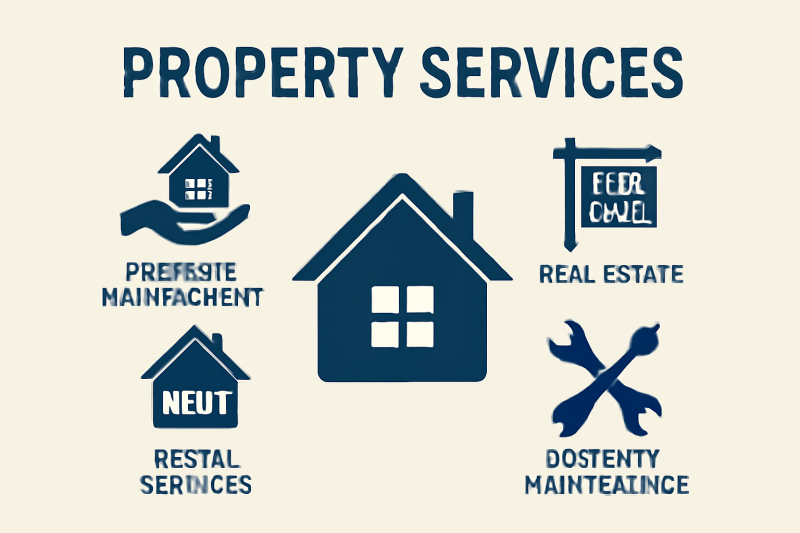



Please fill out the form below.
Email us: info@blpproperties.co.uk / blpropertyservices@gmail.com
Address: 26-28 Hammersmith Grove, London, W6 7BA, United Kingdom

How Estate Agencies Assist Landlords:
1. Finding the Right Tenants:
-
Property Marketing: Estate agencies have extensive reach and marketing tools to help landlords advertise their rental properties effectively. This might include creating high-quality photos, detailed descriptions, and showcasing the property across multiple online platforms, such as property listing sites, social media, and their own websites. By marketing a property effectively, they increase the chances of finding a reliable tenant quickly.
-
Tenant Vetting: Estate agencies screen potential tenants thoroughly, which helps landlords avoid problematic renters. The process usually includes:
-
Credit Checks: Ensuring that tenants have a good financial track record and are likely to pay rent on time.
-
Background Checks: Verifying the tenant’s criminal history, employment status, and rental history.
-
References: Checking previous landlord references to confirm that the tenant has a history of taking care of the property.
-
2. Lease Agreements & Legal Compliance:
-
Drafting Lease Contracts: One of the most important tasks an estate agency does is ensure that the lease agreement is legally sound. They make sure that the lease terms are clear and compliant with local property laws (e.g., tenant’s rights, eviction rules, and rent regulations).
-
Legality & Safety Compliance: Estate agencies ensure that the property complies with all necessary health and safety regulations. For example:
-
Gas Safety Certificates: Ensuring that all gas appliances are checked annually.
-
Electrical Safety: Ensuring that electrical installations are safe and compliant.
-
Smoke & Carbon Monoxide Detectors: Ensuring the property is equipped with legally required safety devices.
-
3. Property Management & Maintenance:
-
Routine Property Inspections: Estate agencies conduct periodic property inspections to ensure that the property is being properly maintained and that tenants are following the terms of their lease. They check for things like cleanliness, wear and tear, or any damages that need to be fixed.
-
Handling Repairs & Maintenance: When things break or need attention, the agency can handle maintenance requests, from fixing a leaky tap to addressing more serious issues like electrical or plumbing problems. This saves landlords the hassle of managing repairs themselves.
-
Emergency Services: Estate agencies often have 24/7 emergency repair services, helping landlords deal with urgent issues like plumbing leaks or heating failures without delay.
4. Rent Collection & Financial Management:
-
Timely Rent Collection: Estate agencies take on the task of collecting rent each month, ensuring that landlords get paid on time. This is often done through online systems or bank transfers for easy tracking.
-
Financial Statements & Reports: Many estate agencies provide landlords with regular financial statements, showing income (from rent) and any expenses (maintenance, agent fees, etc.). This helps landlords keep track of their property’s profitability and maintain accurate tax records.
5. Dealing with Tenant Issues:
-
Tenant Communication: Estate agencies act as the middleman between landlords and tenants, handling communications, complaints, and requests. If a tenant has issues or concerns, they contact the agency first, reducing the likelihood of direct conflict between the two parties.
-
Dispute Resolution: In the event of a disagreement (e.g., a tenant damaging the property, or a rent payment issue), the agency steps in to mediate and resolve the issue according to the lease agreement and legal standards.
6. Evictions & Legal Processes:
-
Eviction Assistance: If a tenant breaches the lease or fails to pay rent, an estate agency can help the landlord initiate the eviction process, ensuring it's done legally and in compliance with local eviction laws. The agency handles the paperwork and can work with solicitors to resolve the situation.
-
Handling Lease Termination: If a tenant wishes to leave, the agency can manage the process, including ensuring that the property is left in good condition, inspecting for damages, and ensuring that the security deposit is returned appropriately.
How Estate Agencies Assist Tenants:
1. Finding Suitable Properties:
-
Property Search Assistance: Tenants often rely on estate agencies to help them find the right rental property. Agencies listen to tenants’ needs—such as location, size, budget, and amenities—and help them search for properties that match those criteria. Since agencies typically have access to a range of listings (including exclusive ones), tenants can be more confident that they’re seeing a broad selection of available options.
-
Virtual Tours & Viewings: Estate agencies often conduct virtual or in-person viewings to give tenants a first-hand look at the property. This makes it easier for tenants to assess whether the property suits their needs before committing to a rental.
2. Guiding Tenants Through Lease Agreements:
-
Understanding Terms: Estate agents explain the terms of the lease to tenants, ensuring they understand what they are agreeing to. This includes important points like the rent amount, payment schedule, deposit requirements, and the rules around pets, maintenance, and repairs.
-
Protecting Tenant Rights: Estate agencies help tenants understand their rights—such as the right to a safe, habitable living space, and the right to privacy. They also explain the procedures for lease termination, rent increases, and the process for resolving disputes.
3. Handling Maintenance & Repairs:
-
Reporting Issues: When something in the rental property needs repair, tenants can contact the estate agency directly. The agency acts as the intermediary, helping tenants get issues fixed promptly (from leaky taps to heating malfunctions).
-
Emergency Repairs: For urgent issues, like a burst pipe or power outage, estate agencies often have emergency repair services to resolve problems quickly, minimizing inconvenience for tenants.
4. Deposit Protection & Return:
-
Deposit Management: Estate agencies manage tenant deposits, ensuring that they are held in a secure and government-backed scheme (if required by local law). This ensures that the tenant’s money is protected and will only be used to cover damage or unpaid rent.
-
End-of-Tenancy Inspections: When tenants move out, the agency usually conducts a final inspection to assess any damages. If the property is in good condition, the full deposit is returned. The agency ensures a fair process, protecting tenants from unreasonable deductions.
5. Handling Disputes & Issues:
-
Tenant-Landlord Mediation: If disputes arise between the landlord and tenant (e.g., over rent payments or property condition), the estate agency helps mediate the situation. They ensure that both parties follow the legal procedures and work towards a resolution that is fair and compliant with the lease.
-
Negotiation Support: If there are rent increases or other changes, the estate agency often helps tenants negotiate terms, ensuring they aren’t unfairly treated by the landlord. They may help tenants understand their rights and obligations in such situations.
6. Security & Safety:
-
Ensuring a Safe Environment: Estate agencies ensure that properties are compliant with safety regulations—such as fire safety, carbon monoxide detection, and secure locks—giving tenants peace of mind regarding their living conditions.
-
Move-In Inspections: Before moving in, the estate agency usually conducts a thorough move-in inspection, which is documented. This helps protect the tenant from being held responsible for damages they didn’t cause when they move out.
Summary:
An estate agency plays a crucial role in ensuring that both landlords and tenants have a smooth, efficient, and legally compliant rental experience.
-
For landlords, agencies provide comprehensive services, including finding reliable tenants, managing property maintenance, handling rent collection, and dealing with tenant disputes and evictions.
-
For tenants, agencies offer assistance with finding suitable rental properties, understanding lease agreements, requesting repairs, and ensuring their security deposit is managed fairly.